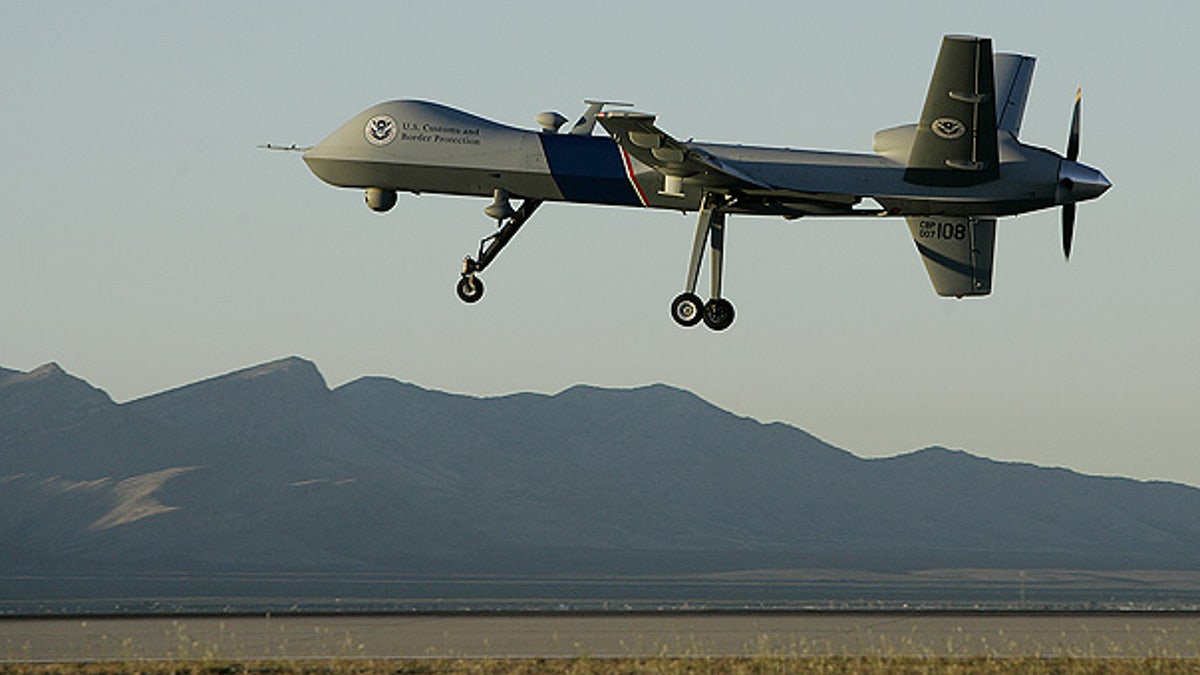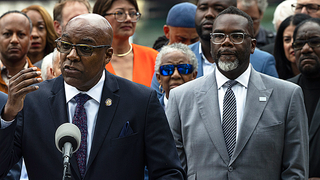
A Predator drone takes off on a U.S. Customs Border Patrol mission from Fort Huachuca, Ariz. (AP/FILE)
The U.S. is not at war with Libya and has not taken sides, but President Obama nevertheless has signed off on the use of armed predator drones in the North African nation that has been torn by a weeks-old bloody conflict, Defense Secretary Robert Gates said Thursday.
"What the president has said that where we have some unique capabilities, he is going to use those, and in fact he has approved the use of armed predators, and I think today may have been in fact their first mission," he said.
The president approved the use of two unmanned aircraft around the clock to pick off targets in urban areas in Libya. The U.S. military tried to launch them Thursday but turned them back due to bad weather.
Obama already uses the drones to target terrorists along Pakistan's border with Afghanistan. Gates said the drones will enable more precise attacks against Col. Muammar Qaddafi's forces.
The move carries political risks as it could further alienate the president's anti-war base as he ramps up his re-election campaign. And several members of Congress already feel spurned by the president because he launched "limited" military operations without consulting them first. Stepping up the U.S. effort there could draw more ire from them.
Obama has gone to great lengths to portray the U.S. military as taking a backseat role in the international campaign, sanctioned by the United Nations, to protect Libyan citizens from Qaddafi's bloody crackdown on dissenters.
But his efforts have been complicated by the stalemate in Libya, where the presence of a NATO-led mission has not been able to give the upper hand to rebel forces who have resembled the gang that couldn't shoot straight.
Gates pushed back against suggestions that the drones provides more evidence that the mission in Libya is expanding beyond its original goals – a development known as mission creep.
"I think that the president has been clear to us that the primary strike role has been turned over to our allies and our friends, and if we can make a modest contribution with these armed Predators, we'll do it, but I don't think any of us see that as mission creep," he said.
Gen. James Cartwright, the vice chairman of the Joint Chiefs of Staff, said the use of drones will give the edge to the international forces in crowded urban areas, where they are struggling "to pick friend from foe."
"So a vehicle like the Predator that can get down lower and can get ID's better helps us," he said.












































